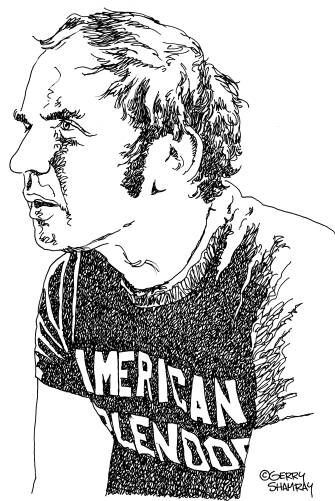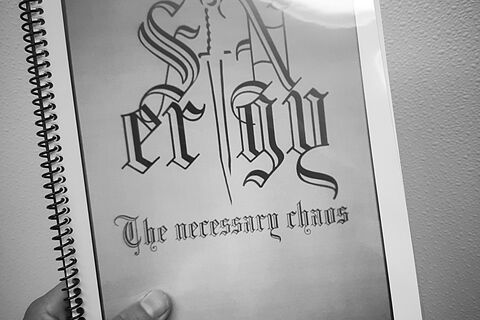RELATIONSHIPS

Contrary to what we think, relationships are founded on core weaknesses rather than core values and strengths. Think about it: we are drawn to people that fill voids within us. If we lack organizational skills, there is a magnetism to those who would bring order to our chaotic life. Passive personalities tend to partner up with those who are bolder in nature. To add to the complicated scenario we define others by our past experiences. The beaten dog assumes every owner will abuse them. The canine will associate people with pain and fear. I am not suggesting that relationships mean one partner has ownership over the other, I am merely using this as an example. There are more subtle effects, however, that are embedded in our psyche over time. Our highschool relationships were full of late-night talks that suggested grandiose plans for the future: the house you would buy, how many kids you would have, the dog’s name, and don’t forget the white picket fence.
There was a purity to such times, but somewhere along the line we lost that innocence and labeled it perspective. Men and women alike (generally from age 25 to 35) project their fears on potential mates. They bring their baggage with them into new relationships. Our teens and early 20’s usually prove to be more light-hearted because we haven't accumulated enough negative experience regarding partnership. Our faith in love and happy-endings was still one of a healthy perspective, full of Disney romance. You can not be too one-sided, one will have to err on the side of caution, simultaneously remaining truehearted that love will prevail.
Relationships are the ultimate business partnership. If you refuse to admit this to yourself, you both are in for a bad deal. View it as a controlled burn. You have to have boundaries and contingency plans. The arrangements have to be crystal clear upfront and both have to understand that (once the honeymoon phase is over) it's going to take work. Everything in life requires maintenance- from your physical health and mental well-being to- your home and vehicles. If most people had a maintenance list (in order of priority) investing in your partner would be at the bottom. Although everything else falls apart when we lose our significant other, we refuse to give relationships the necessary attention they deserve. It's been said that a hard breakup or a divorce is comparable to mourning the death of a loved one. I happen to think it's worse because the stages of grief are prolonged so long as we refuse to admit it’s over. At least there is a finality in death, as we can immediately start the grieving process. Furthermore, it doesn't help to know that your partner will soon (if not already) be cuddling up next to someone else.
Thinking emotionally clouds our ability to make rational decisions. It’s not going to be easy to decide the fate of your relationship when you are emotionally involved. You are blinded by their potential. Love or infatuation blurs the line between fantasy and reality. You may see your partner for who they could be rather than who they are at that moment. You hold on to happy memories, replaying them over in your mind. Your subconscious realizes the potential pain of a separation or breakup, so it does what it’s supposed to do: it searches for reasons to stay. We search for validation from friends and family, guiding the conversation in favor of what we want rather than what we should do.
Working hard to navigate the tricky terrain of a relationship can be necessary for growth. You have to decide if you are experiencing growing pains or the plight of a hopeless alliance. Clearly abusive relationships (both mental and physical) are past the point of resolve. It is a hard pill to swallow, but realizing people get what they deserve is important. If you find yourself amid an abusive relationship, one finger points at the abuser and three fingers point back at the victim. You have to take ownership of your choices and self-worth. Look at your situation objectively, if you were on the outside looking in, what would you tell the person in your position to do? Once you have a clear narrative of what should be done write it down. Map out a clear exit strategy for the situation (still from an objective point of view). As hard as it might be, follow this plan with an unshakeable fervor. Emotions are your only enemy at this point.
On the other hand, you might be at a crossroads where fleeing the scene isn’t the answer. You might be throwing away someone who is an asset to your life. This is where you need to be very cautious about the advice you get from your friends and family. Just because something is hard does not mean it's wrong. Friends have the potential to give you advice based on their insecurities, past relationships, and poor values. Misery loves company, so I feel confident saying that you might have some jealous friends that will purposely steer you in the wrong direction. On the other hand, you might have some friends with good intentions that are projecting their past relationship and fears onto you. Assume that friends with a poor relationship history will give you their biased opinion every time. If you choose to seek advice, it’s best to confide in pragmatic acquaintances.
Family can be one of the worst resources for advice. Their guidance is designed to keep you safe and it also can be distorted with emotion. In the eyes of your family, no one will ever be good enough. Families are also capable of jealousy and poor judgment. In the end, you have to follow your heart.
Harvey Pekar was a comic writer and hopeless romantic. He revolutionized comics by creating a new narrative within the comic book world. Harvey would write his comics in an autobiographical fashion, or as he put it: comics that were “meant to emphasize a quotidian existence”. Pekar would highlight the mundane happenings in life, his trips to the grocery store, record collecting, and daily plights. It was a realist point of view rather than the superhero dialogue comics were known for.
“When I was a kid I read comics for a while, then I got sick of them...you know the superhero stuff. A Comics writer can draw from any word in the dictionary, he's working with the same words as Shakespeare. You can use a zillion different types of illustration styles, there's no reason why Comics can't be as good as any other art form.” -HARVEY PEKAR
Harvey’s wife Joyce Brabner was a fan of Pekar’s work before they met. They would correspond over the phone for sometime before eventually meeting. Their first date was somewhat of a beautiful disaster. Joyce describes their first dinner as awkward, she asked God for a sign, something that would show her if he was the one or not. Joyce ended up getting food poisoning and locked herself in his bathroom. [Harvey stood just outside the door deeply concerned]. During their talks, Harvey learned of Joyce's love for tea. In preparation for her stay, Harvey bought a variety of herbal teas. [Remembering the teas were in the cabinet Harvey brought them to her aid]. It was his attempt to make her feel better, along with his genuine concern that piqued Joyce’s interest. That was all the validation she needed, she knew right then and there that she would marry Harvey Pekar.
Joyce Brabner recalls their first date:
“And then I got food poisoning. I vomited, I backed up his toilet and everything like that. I had just asked myself, I said, ‘Dear God show me a sign’ and that was the sign: I saw this guy (on our first date) mopping everything up and bringing me tea. He figured out from our conversations that I liked herbal tea and he bought about five or six different kinds of herbal teas. He tried to make me feel better...and that's all I really needed to know. We could figure out later on who's got the favorite band or what kind of jogging togs we want to buy and run off in, but I knew that this guy was a stand-up guy!”
They wed in 1984 and remained married until Harveys passing in 2010. During that time they collaborated on many comics, unofficially adopted a kid, and enjoyed many good times. They were an asset to each other and the perfect example of what is possible if you follow your heart. Both Harvey and Joyce had been married prior to meeting each other. They could have easily been discouraged from their past experiences, but they remained innocent. Because of Joyce's past marriage complications, she was able to discern important values within Harvey in a very short period of time. Her intuition proved to be right, as she didn’t let her past relationship failures determine her future.
“You’ve got to find what you love. And that is as true for your work as it is for your lovers. If you haven’t found it yet, keep looking. Don’t settle. As with all matters of the heart, you’ll know when you find it. And, like any great relationship, it just gets better and better as the years roll on. Don’t be trapped by dogma — which is living with the results of other people’s thinking. Don’t let the noise of others’ opinions drown out your own inner voice. And most important, have the courage to follow your heart and intuition. They somehow already know what you truly want to become. Everything else is secondary.” -STEVE JOBS
Like 0 Pin it 0


